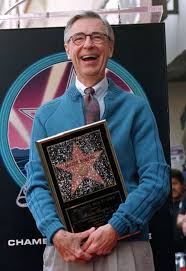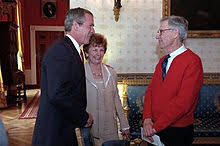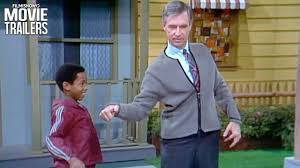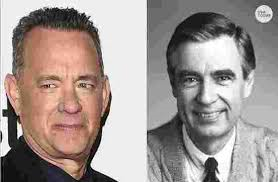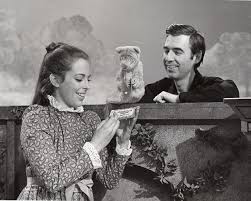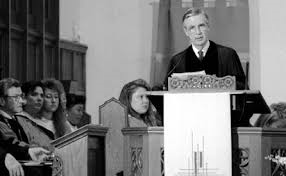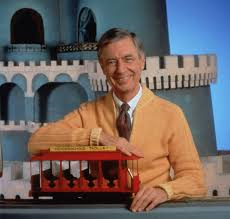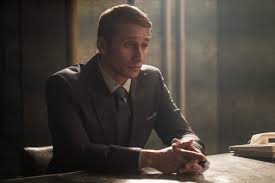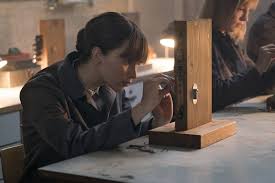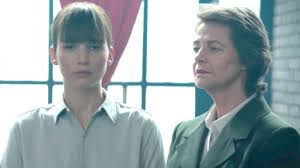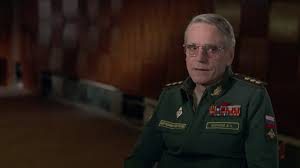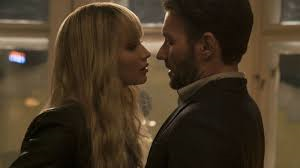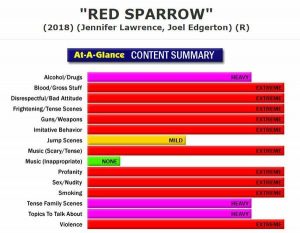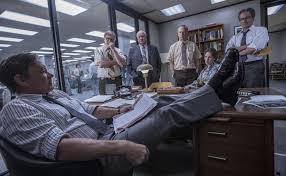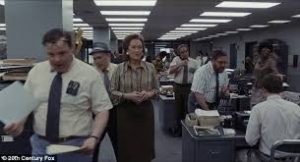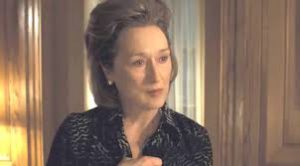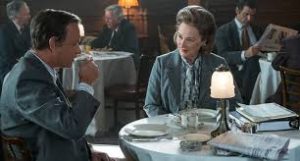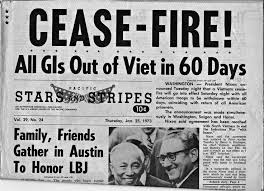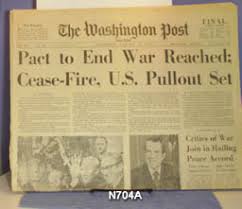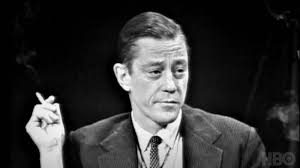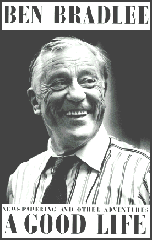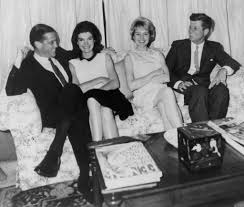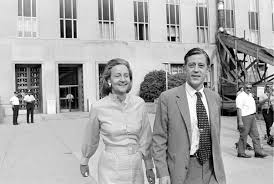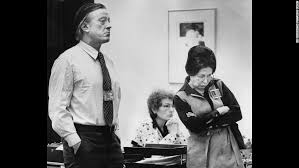SHORT TAKE: Historically accurate bio-drama about the life of President Ronald Reagan, his enduring love affair with his wife, Nancy, and his heroic decades long fight to root out Communism in our country and around the world.
LONG TAKE: Loving but honest, Reagan, based on Paul Kengor’s novel: Ronald Reagan and the Fall of Communism, is a tribute to Ronald Reagan, the man Rush Limbaugh referred to as Ronaldus Magnus, the man tied with Donald Trump for the best president we’ve have since our founding fathers. And it is a gem. It begins March 30, 1981, the infamous day outside of the Washington Hilton, when he and some of his retinue were shot by an attempted assassin, much like Donald Trump was so targeted July 13, 2024. That is only the beginning of the parallels between Trump and the story told in Reagan.
Dennis Quaid does a delightful turn as the eponymous Leader of the Free World, gently and respectfully portraying Reagan, the man as well as the statesman. Quaid naturally conveys Reagan’s personality, from his sense of humor under pressure to his contagious and confident air of authority in negotiation, as well as his Christian strength in recognizing and accepting the Hand of God in both his own victories and defeats. (One minor piccadillo – I thought the too-heavy makeup, prosthetics and CGI was a little distracting at first. But Quaid’s performance is excellent and effortlessly created the magic of suspension of disbelief with his acting alone.)
Reagan’s courage and wit are on clear display after his attempted assassination, as he tries to comfort his wife, Nancy (played with gentle and loving enthusiasm by Penelope Ann Miller) and crack jokes with his surgical team. It is also demonstrated how more civilized our country was at the time, as the worldwide sentiment was towards Reagan and his recovery, instead of today’s vicious media which made no effort to hide their childish animosity towards Trump despite his injury and the death of one of Trump’s supporters.
Assuming it is true, I was surprised to learn that even one of Reagan’s staunchest political enemies “Tip” O’Neill, Jr., Democrat Speaker of the House, prayed the rosary at Reagan’s bedside.
Reagan spent the majority of his adult life going head to head against the corruption of Communism infiltrating Washington and Hollywood, which then as now, sought to destroy the foundations of America. Similarly, today, Donald Trump has faced, during his political tenure, a resurgence of this corruption. (Though Trump’s job is harder given that the cancer of Marxism has been allowed to eat far more deeply and into many more establishment institutions.)
Then the movie cleverly takes a peculiar turn, landing us in the present at the apartment of Viktor Petrovich, (Jon Voight) an elderly, weary, and worn KGB agent, who spends the rest of the movie explaining to a bemused Russian agent, Andrei Novikov (Alex Sparrow) how Reagan single-handedly managed to bring down the Soviet Union.
The rest of this solid pic follows the many highlights of Reagan’s political and personal life, as seen through the eyes of this KGB agent, previously assigned to watch and outmaneuver Reagan, a task which constantly was always just out of Petrovich’s grasp.
And in the midst of his battles Reagan meets and marries the love of his life, his devoted consort battleship (as Henry Higgins might have put it), Nancy Davis Reagan. They become inseparable as Reagan becomes the governor of California then President of the United States.
Petrovich regales to Novikov how the Soviets harried and spied on Reagan. How, despite constant attempts to aid his Soviet superiors in stopping Reagan from stopping them, nothing worked – not threats, not unrest fomented on Reagan’s political doorsteps, not the assail of Democrats and the convenient idiots for the Communists who surrounded Reagan. Not well meaning but lesser committed allies who unintentionally gave Reagan bad advice. Not sabotage nor betrayal by the Communist sympathetic media who caricatured him, deliberately misrepresented his economic proposals, and warped the image of his negotiations. Not the Berlin Wall nor assassination attempts. Reagan out plans, out negotiates, out spends, outmaneuvers, out charms and in the end…simply wears the Soviets out until they have no choice but to capitulate to this “American Cowboy,” who forced them to “tear down that wall”. (Referring to the Berlin Wall which separated with mortal violence the prosperous West Berlin, the latter of which was oft called the “Island of Freedom,” from the Soviet oppressed East Berlin for 28 years. Many unarmed men and women, merely seeking to be free in their own country, were shot trying to cross over the massive concrete barbed barrier. The tearing down of this bloodied Wall signaled the beginning of the end to Soviet supremacy in Russia.)
You almost feel sorry for Petrovich – this beaten and bemused failed information gatherer. Although he accurately lays out all the information to this junior leaguer, he never quite seems to comprehend just what it was that enabled Ronald Reagan, against odds, threats to his life, the might of the Soviet Union, and opposition from his own countrymen (then and now the Democrats and RINOs), to defeat one of the most powerful Marxist countries in the world.
So we become privy, at the most pivotal times of Reagan’s life, to the Angel at his side, as well as the Devil at his back.
The Screwtape Letters, by the brilliant CS Lewis, is a creepily whimsical tale of an elder statesman demon, Screwtape, tutoring his nephew and apprentice demon, Wormwood, on the fine art of corrupting a soul. Wormwood has a “patient” who eventually, to Screwtape’s frustration and Wormwood’s destruction, converts to Christianity, is supported in his faith by the love of a good woman, and defeats both Screwtape and Wormwood by never succumbing to the multitude of temptations and terrors laid before him. And it occurred to me that Reagan, in concept, is a modern day successor to The Screwtape Letters, if it were set after Screwtape’s defeat, as we listen to the old demon Petrovich commiserate with the younger replacement apprentice demon, Novikov, as they vainly try to comprehend how they lost to Reagan. Wormwood was absorbed by Screwtape as the penalty for failing to corrupt their “patient”. Correspondingly, who knows HOW many Wormwoods were “disappeared” by the Soviet apparatchiks for failing to stop Reagan.
Ironically, Petrovich misses the obvious. While Petrovich amasses voluminous amounts of information and knowledge about Reagan, he seems to have acquired very little wisdom. Reagan won and protected America’s greatness because he was a man of faith, fortitude and commitment, who loved his wife, his fellow man, and his country more than himself and would…not…quit.
But as you can read in Eccleiastes 1:9 – “There is no new thing under the sun.” It is easy to see the parallels to today’s headlines as President Trump faces similar demonic opposition in the Woke, pro-Communist, pro-death, anti-Western culture so prevalent in our media, entertainment and elite entrenched political swamp. Trump, as did Reagan, is combating similar forces of evil who seek to destroy our country and erase our Judeo-Christian heritage.
And just as it is beyond the comprehension of Petrovich, the modern day Screwtape, to understand how one man’s faith and love can overcome impossible odds, the Swamp we face today will not likely understand why this movie will resonant with the vast majority of Americans who, like the East Berliners, seek only to be free in their own country, or how and why Reagan’s successor in valor, Trump, will not stop until our beloved country’s citizens are free to MAKE AMERICA GREAT AGAIN

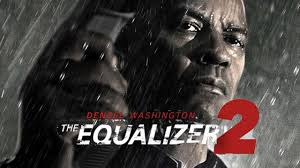
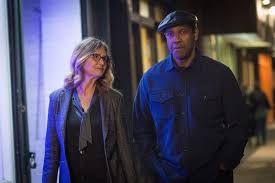 One of the rules of good scriptwriting is SHOW DON'T TELL and I think Equalizer 2 did a (excuse the pun) bang up good job on this point.
One of the rules of good scriptwriting is SHOW DON'T TELL and I think Equalizer 2 did a (excuse the pun) bang up good job on this point.
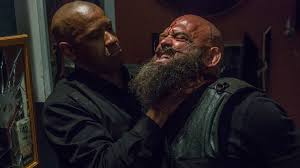 The main storyline of Equalizer 2 follows McCall when, about a half hour into the movie, his friend is brutally murdered.
The main storyline of Equalizer 2 follows McCall when, about a half hour into the movie, his friend is brutally murdered. 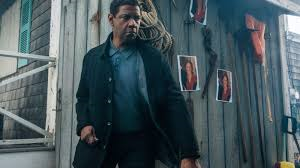 McCall announces, is expected to, and eventually does, take violent retribution against the perpetrators. But I found the subplots, and the way the narrative is handled, far more interesting.
McCall announces, is expected to, and eventually does, take violent retribution against the perpetrators. But I found the subplots, and the way the narrative is handled, far more interesting.
 For example, the movie starts, (and not properly a spoiler as it is in the trailer) with a Muslim-costumed Denzel Washington confronting Turkish thugs on a train. Only later, as he goes about his normal routine back in Chicago do we OBSERVE how he knew of a problem and what it would take to fix it. The set up and solution were very quietly and subtly handled. And this small subplot did not even directly relate to the main action, but only served to establish McCall's abilities and personality.
For example, the movie starts, (and not properly a spoiler as it is in the trailer) with a Muslim-costumed Denzel Washington confronting Turkish thugs on a train. Only later, as he goes about his normal routine back in Chicago do we OBSERVE how he knew of a problem and what it would take to fix it. The set up and solution were very quietly and subtly handled. And this small subplot did not even directly relate to the main action, but only served to establish McCall's abilities and personality.
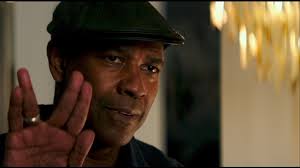 The most compelling part of the screenplay was how McCall exercises that platitude of doing random acts of kindness using the gifts we have. For us ordinary mortals, it might be holding someone's door open or even paying for the coffee of the stranger in line behind you.
The most compelling part of the screenplay was how McCall exercises that platitude of doing random acts of kindness using the gifts we have. For us ordinary mortals, it might be holding someone's door open or even paying for the coffee of the stranger in line behind you. 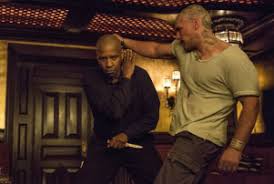 For McCall it's beating the tar out of dangerous, abusive men then making them call the cops on themselves afterwards. When asked why he would take on the job of cleaning spray paint graffiti off of a wall when anyone else could do it, he responds that, although anyone else COULD, no one else DOES, so he does. This is the mantra from which he lives and a motto which raises the bar on what could otherwise have been just another Death Wish vigilante violence porn clone. While I'm not advocating vigilantism, often the mentality is a "kill them all and let God sort them out" philosophy.
For McCall it's beating the tar out of dangerous, abusive men then making them call the cops on themselves afterwards. When asked why he would take on the job of cleaning spray paint graffiti off of a wall when anyone else could do it, he responds that, although anyone else COULD, no one else DOES, so he does. This is the mantra from which he lives and a motto which raises the bar on what could otherwise have been just another Death Wish vigilante violence porn clone. While I'm not advocating vigilantism, often the mentality is a "kill them all and let God sort them out" philosophy.
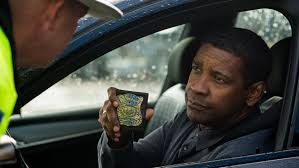

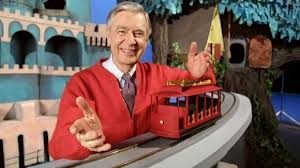
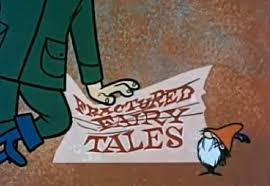
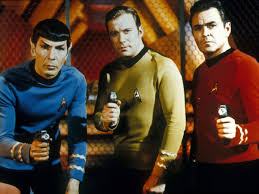
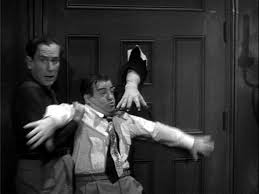
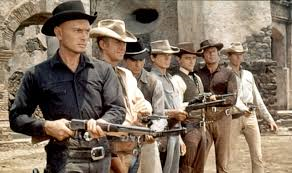
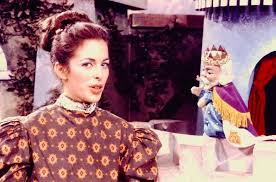

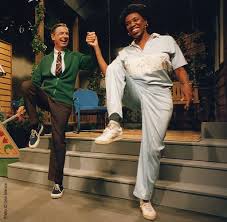

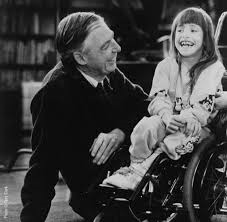

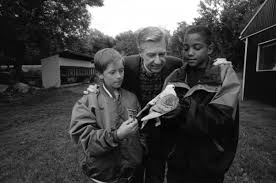
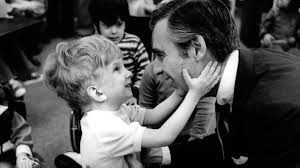
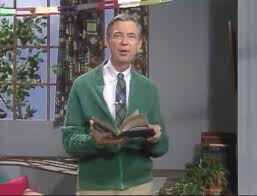
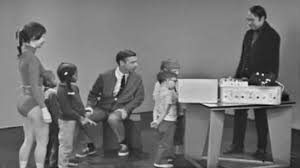
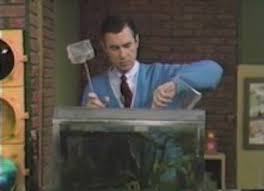
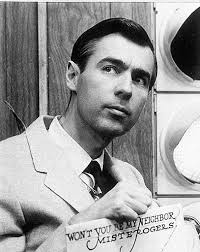
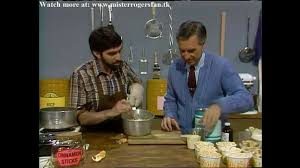
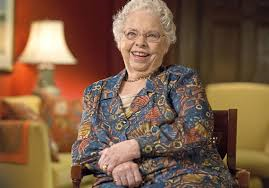
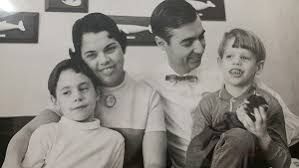
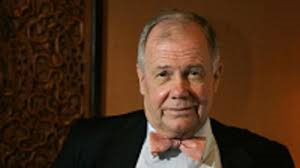
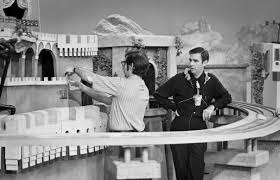
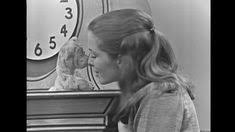
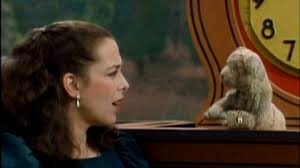
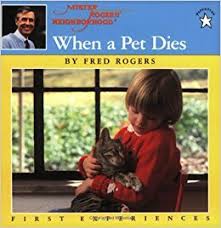
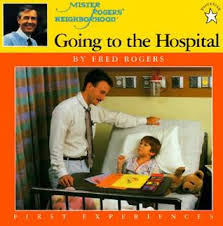

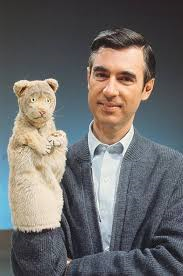
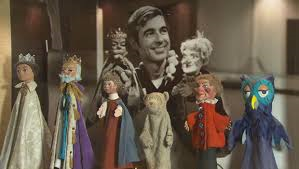
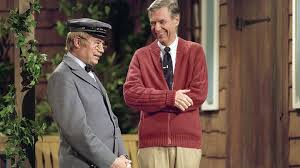

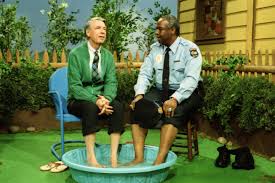


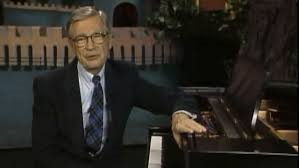
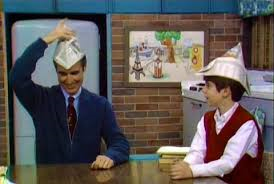
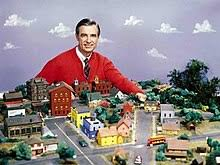
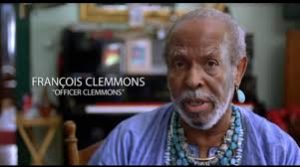
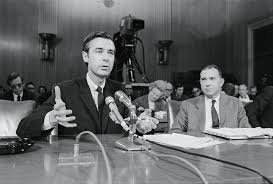
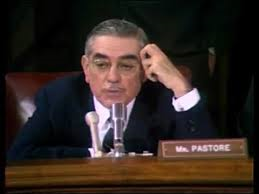
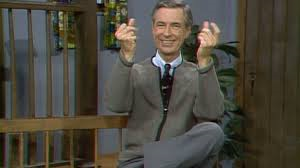
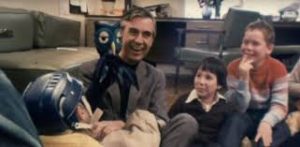
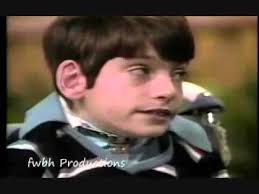
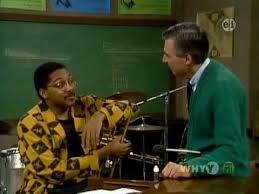
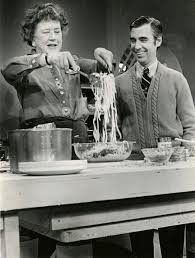
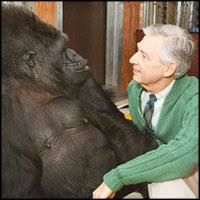
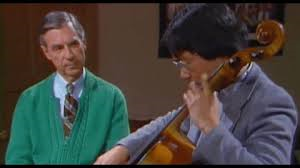


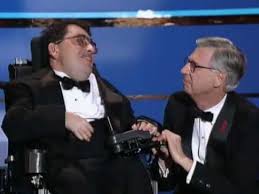
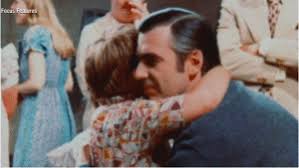
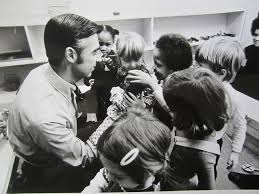
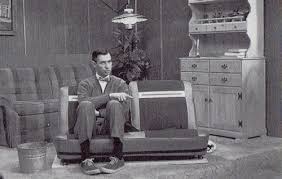 The picture of humility, his wife remembered how on his death bed he wondered if he would be accepted into Jesus' sheepfold.
The picture of humility, his wife remembered how on his death bed he wondered if he would be accepted into Jesus' sheepfold. 